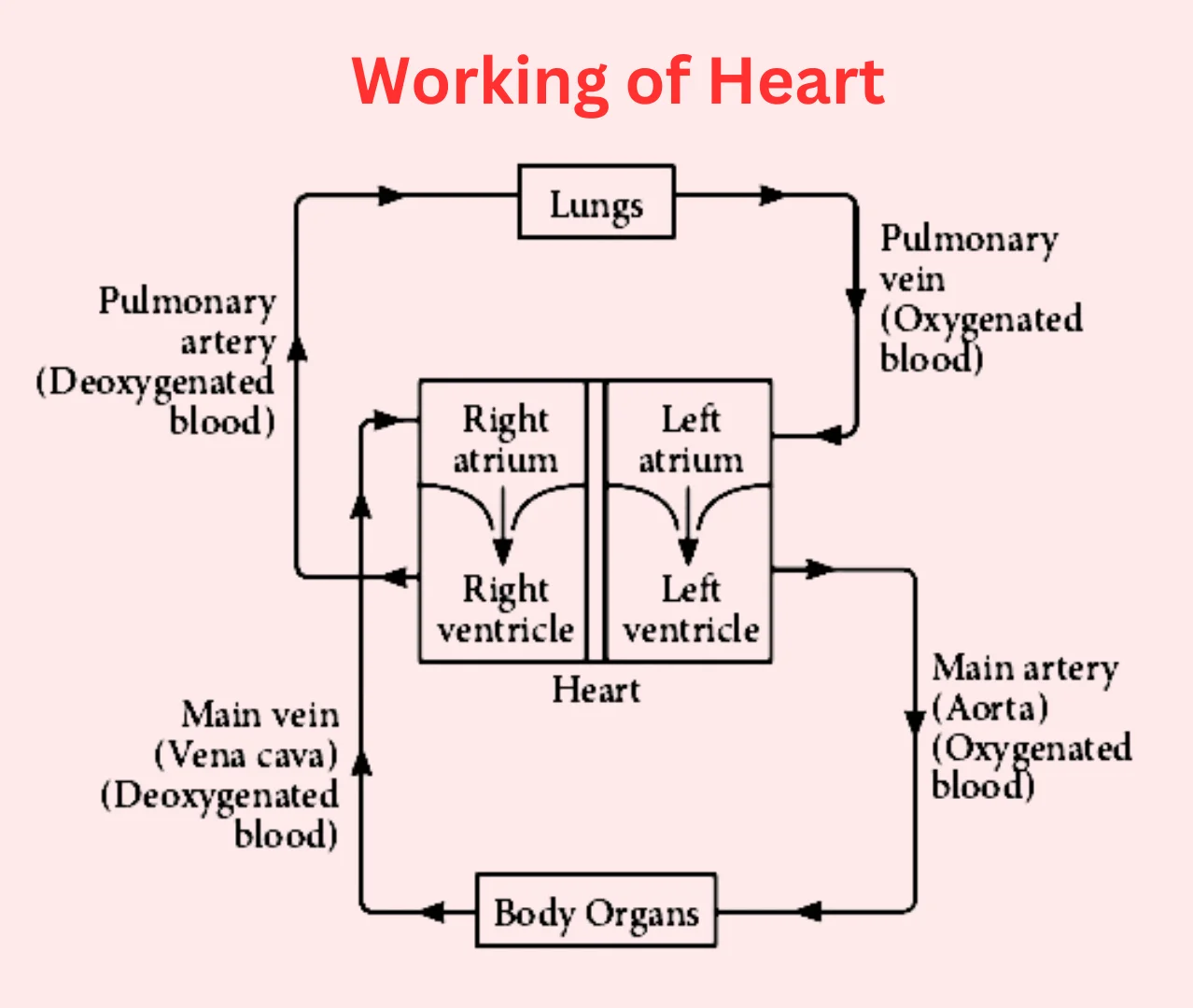Select any one of options given above.
Poll Results
Please login to vote and see the results.
Sign up to our innovative Q&A platform to pose your queries, share your wisdom, and engage with a community of inquisitive minds.
Log in to our dynamic platform to ask insightful questions, provide valuable answers, and connect with a vibrant community of curious minds.
Forgot your password? No worries, we're here to help! Simply enter your email address, and we'll send you a link. Click the link, and you'll receive another email with a temporary password. Use that password to log in and set up your new one!
Please briefly explain why you feel this question should be reported.
Please briefly explain why you feel this answer should be reported.
Please briefly explain why you feel this user should be reported.
At Qukut, our mission is to bridge the gap between knowledge seekers and knowledge sharers. We strive to unite diverse perspectives, fostering understanding and empowering everyone to contribute their expertise. Join us in building a community where knowledge flows freely and growth is limitless.
When established apple?
Steve Jobes
Steve Jobes
See lessThe village known as "The Most Haunted Village of India" is Kuldhara, located near Jaisalmer in Rajasthan. Kuldhara is often referred to as a ghost village due to its abandoned state and the legends surrounding its desolation. According to local lore, the village was once home to the Paliwal BrahminRead more
The village known as “The Most Haunted Village of India” is Kuldhara, located near Jaisalmer in Rajasthan. Kuldhara is often referred to as a ghost village due to its abandoned state and the legends surrounding its desolation. According to local lore, the village was once home to the Paliwal Brahmins, who fled overnight in 1825 to escape the oppressive demands of a local minister, leaving behind a curse that no one would ever be able to inhabit the village again.
While Kuldhara is recognized for its haunted reputation, it’s worth noting that Bhangarh Fort is frequently cited as the most haunted place in India, although it was not included in your options. The stories and eerie atmosphere surrounding both locations attract many visitors interested in the supernatural.
See lessIsotopes are atoms of the same chemical element that have the same number of protons in their atomic nucleus, but differ in the number of neutrons. This variation in neutron number affects the atomic mass of the isotopes, but not their chemical properties. Key Characteristics of Isotopes: 1. _Same nRead more
Isotopes are atoms of the same chemical element that have the same number of protons in their atomic nucleus, but differ in the number of neutrons. This variation in neutron number affects the atomic mass of the isotopes, but not their chemical properties.
Key Characteristics of Isotopes:
1. _Same number of protons_: Isotopes of the same element have the same number of protons in their atomic nucleus.
2. _Different number of neutrons_: Isotopes differ in the number of neutrons in their atomic nucleus.
3. _Same chemical properties_: Isotopes of the same element exhibit the same chemical properties due to the same number of electrons.
4. _Different atomic mass_: The variation in neutron number affects the atomic mass of the isotopes.
Examples of Isotopes:
1. _Hydrogen-1, Hydrogen-2, and Hydrogen-3_: These are isotopes of hydrogen with 0, 1, and 2 neutrons, respectively.
2. _Carbon-12, Carbon-13, and Carbon-14_: These are isotopes of carbon with 6, 7, and 8 neutrons.
Why did the hitler start ww2?
Adolf Hitler started World War II for a number of reasons, including: Territorial expansion Hitler wanted to expand Germany's territory to reunify the German people and create "living space" for Germans to be economically and militarily secure. Revenge for the Treaty of Versailles Many Germans resenRead more
Adolf Hitler started World War II for a number of reasons, including:
Territorial expansion
Hitler wanted to expand Germany’s territory to reunify the German people and create “living space” for Germans to be economically and militarily secure.
Revenge for the Treaty of Versailles
Many Germans resented the harsh terms of the Treaty of Versailles, which ended World War I.
Annexation of Austria and Czechoslovakia
Hitler annexed Austria and Czechoslovakia in 1938–39 with little resistance.
Invasion of Poland
On September 1, 1939, Germany invaded Poland, which had been guaranteed military support by France and Britain. Two days later, both countries declared war on Germany, marking the beginning of World War II.
Hitler rose to power through the Nazi Party, which he formed after returning from World War I. The Nazis’ goals included seizing power through Germany’s parliamentary system, installing Hitler as dictator, and creating a community of racially pure Germans.
“Hard Skills will get you to the interview, but soft skills will get you a job”. Straight to the point— how do u develop soft skills?
Soft skills are developed through deliberate practice, self-reflection, and consistent real-world application. Unlike technical skills, they evolve over time through behavior, feedback, and experience. First, self-awareness is essential. Identifying personal strengths and areas for improvement—oftenRead more
Soft skills are developed through deliberate practice, self-reflection, and consistent real-world application. Unlike technical skills, they evolve over time through behavior, feedback, and experience.
First, self-awareness is essential. Identifying personal strengths and areas for improvement—often through structured feedback, reflection, or performance reviews—provides a clear starting point for growth.
Second, communication skills improve through intentional practice. This includes learning to express ideas clearly, listening actively, and adapting communication style to different audiences. Regular participation in discussions, presentations, and collaborative work environments strengthens these abilities.
Third, emotional intelligence plays a critical role. Managing one’s emotions, responding calmly under pressure, and showing empathy toward others enhances teamwork and leadership effectiveness.
Fourth, soft skills develop through exposure to diverse situations. Taking on responsibilities such as team coordination, conflict resolution, or client interaction builds adaptability, problem-solving, and interpersonal confidence.
Finally, consistency and professionalism reinforce soft skills. Reliability, accountability, ethical conduct, and respect for others cultivate trust and long-term professional credibility.
In summary, soft skills are developed not through theory alone, but through continuous practice, feedback, and mindful behavior in professional settings.
See lessक्या शौक व्यक्ति के जीवन को सकारात्मक रूप से प्रभावित करता है? कैसे?
हाँ, शौक (hobbies) व्यक्ति के जीवन को सकारात्मक रूप से प्रभावित करते हैं। ये न केवल मानसिक और शारीरिक स्वास्थ्य को बेहतर बनाते हैं, बल्कि व्यक्तिगत और सामाजिक जीवन को भी समृद्ध करते हैं। यहाँ बताया गया है कि शौक कैसे सकारात्मक प्रभाव डालते हैं: 1. मानसिक स्वास्थ्य में सुधार तनाव कम करना: शौक जैसे पेRead more
हाँ, शौक (hobbies) व्यक्ति के जीवन को सकारात्मक रूप से प्रभावित करते हैं। ये न केवल मानसिक और शारीरिक स्वास्थ्य को बेहतर बनाते हैं, बल्कि व्यक्तिगत और सामाजिक जीवन को भी समृद्ध करते हैं। यहाँ बताया गया है कि शौक कैसे सकारात्मक प्रभाव डालते हैं:
शौक व्यक्ति के जीवन में ऊर्जा, रचनात्मकता, और सकारात्मकता का संचार करते हैं। ये मानसिक और शारीरिक स्वास्थ्य को बेहतर बनाते हैं, रिश्तों को मजबूत करते हैं, और जीवन को अधिक अर्थपूर्ण बनाते हैं। हर व्यक्ति को अपनी रुचि के अनुसार शौक अपनाना चाहिए।
See lessWhat happens in the deep consciousness during a near-death experience?
Near-death experiences (NDEs) are profound events reported by individuals who have come close to death or experienced life-threatening situations. While scientific explanations and spiritual interpretations vary, here’s a breakdown of what is believed to happen in the deep consciousness during suchRead more
Near-death experiences (NDEs) are profound events reported by individuals who have come close to death or experienced life-threatening situations. While scientific explanations and spiritual interpretations vary, here’s a breakdown of what is believed to happen in the deep consciousness during such experiences:
In essence, near-death experiences remain a profound mystery, blending elements of neuroscience, psychology, and spirituality. They challenge our understanding of consciousness, offering insights into what might lie beyond ordinary perception.
See lessDiscuss the role of peer pressure on an adolescent’s personality development
A rainbow is caused by sunlight and atmospheric conditions. Light enters a water droplet, slowing down and bending as it goes from air to denser water. The light reflects off the inside of the droplet, separating into its component wavelengths--or colors.
A rainbow is caused by sunlight and atmospheric conditions. Light enters a water droplet, slowing down and bending as it goes from air to denser water. The light reflects off the inside of the droplet, separating into its component wavelengths–or colors.
See lessWhat are the fundamental techniques used in archery?
Who caught Ajmal Kasab the terrorist involved in 26/11 Mumbai Attack?
Ajmal Kasab, one of the terrorists involved in the 26/11 Mumbai attacks, was captured by Head Constable Tukaram Omble. On the night of November 26, 2008, Omble, who was part of a police team responding to the attack, managed to capture Kasab alive after a gunfight near Girgaum Chowpatty. Kasab had bRead more
Ajmal Kasab, one of the terrorists involved in the 26/11 Mumbai attacks, was captured by Head Constable Tukaram Omble. On the night of November 26, 2008, Omble, who was part of a police team responding to the attack, managed to capture Kasab alive after a gunfight near Girgaum Chowpatty. Kasab had been shot in the arm, but Omble, displaying immense courage, grabbed hold of him despite the ongoing gunfire. Omble’s action played a crucial role in ensuring that Kasab could be interrogated, leading to important information about the terrorist attack.
Omble’s bravery in capturing Kasab was widely recognized, and he was posthumously awarded the Ashoka Chakra, India’s highest peacetime gallantry award.
See lessKINDLY GIVE ANSWER ALONG WITH PROOF
Problem: There are 1000 doors, all initially closed. 1000 people walk by these doors. The first person opens every door. The second person toggles every second door (i.e., closes doors 2, 4, 6, etc.). The third person toggles every third door (i.e., doors 3, 6, 9, etc.), and so on. The 1000th personRead more
Problem:
There are 1000 doors, all initially closed. 1000 people walk by these doors. The first person opens every door. The second person toggles every second door (i.e., closes doors 2, 4, 6, etc.). The third person toggles every third door (i.e., doors 3, 6, 9, etc.), and so on. The 1000th person only toggles door 1000. After all the people have passed, how many doors remain open?
Step 1: Understand the pattern
Each person toggles the state of doors that are multiples of their own number. For example, person 12 will toggle doors 12, 24, 36, and so on. The state of each door will change every time it is toggled.
Step 2: Think about how many times each door is toggled
Take any door number, say door 6. It gets toggled by person 1 (since 1 divides 6), person 2 (2 divides 6), person 3 (3 divides 6), and person 6 (6 divides itself). In general, a door will be toggled once for each of its positive divisors.
Step 3: Determine when a door ends up open
Since all doors start closed, each toggle changes its state. So, if a door is toggled an even number of times, it will end up closed. If it is toggled an odd number of times, it will end up open.
Step 4: Identify which door numbers are toggled an odd number of times
From number theory, we know that most numbers have an even number of divisors because divisors usually come in pairs (like 2 and 3 for 6, since 2×3 = 6). However, perfect squares have an odd number of divisors. For example, 36 has divisors: 1, 2, 3, 4, 6, 9, 12, 18, and 36. Notice that 6×6 = 36, so the factor 6 appears only once, not in a pair. This gives it an odd number of total divisors.
Therefore, only the doors with perfect square numbers will remain open at the end.
Step 5: Count the perfect squares between 1 and 1000
The perfect squares less than or equal to 1000 are:
1² = 1,
2² = 4,
3² = 9,
…
31² = 961.
So, there are 31 perfect squares between 1 and 1000.
Final Answer:
31 doors will remain open.
Find the next term in the series 5, 10, 20, 40, 80, ?
160
160
See lessIf cars are available in petrol and diesel variants then why is this option not available in the bikes ?
Motorcycles are predominantly available in petrol variants, with very few diesel options. This is due to several technical and practical reasons: Engine Size and Weight Diesel engines are typically heavier and larger than petrol engines of equivalent power output. For motorcycles, where weight and sRead more
Motorcycles are predominantly available in petrol variants, with very few diesel options. This is due to several technical and practical reasons:
While there have been a few diesel motorcycle models developed for specific purposes (like military use), these are exceptions rather than the norm due to the above challenges.
See lessConsider the following trees: ...Read more
Please login to vote and see the results.
The deciduous status of the trees listed is as follows: Jackfruit (Artocarpus heterophyllus): Evergreen tree, not deciduous. Mahua (Madhuca indica): Deciduous tree, sheds its leaves annually. Teak (Tectona grandis): Deciduous tree, sheds its leaves seasonally. Based on the above information: Mahua aRead more
The deciduous status of the trees listed is as follows:
Based on the above information:
So, two of the listed trees are deciduous. The correct answer is: Only two
See lessWhat is soil erosion?How does it effect the biosphere?
What is Soil Erosion? Soil erosion is the process by which the top layer of soil is removed or displaced by natural forces such as wind, water, ice, or human activities. It involves the wearing away of the fertile, nutrient-rich upper layer of soil, which is essential for plant growth and overall ecRead more
Soil erosion is the process by which the top layer of soil is removed or displaced by natural forces such as wind, water, ice, or human activities. It involves the wearing away of the fertile, nutrient-rich upper layer of soil, which is essential for plant growth and overall ecosystem health.
Soil erosion significantly impacts the biosphere in various ways:
| Effect | Description |
|---|---|
| Loss of Fertile Topsoil | The top layer of soil, rich in nutrients and organic matter, is essential for plant growth. Its loss reduces agricultural productivity and affects plant life. |
| Reduction in Agricultural Yield | Erosion leads to the loss of fertile land, decreasing crop yields and food security. |
| Disruption of Aquatic Ecosystems | Sediments from eroded soil can pollute water bodies, leading to the destruction of aquatic habitats and biodiversity. |
| Increased Desertification | Continuous erosion can turn fertile lands into deserts, leading to the expansion of arid regions. |
| Climate Change Contribution | Soil erosion can release stored carbon from the soil into the atmosphere, contributing to greenhouse gas emissions. |
| Loss of Biodiversity | Erosion leads to habitat destruction, affecting both flora and fauna dependent on stable soil for survival. |
| Water Cycle Disruption | Soil erosion affects the water retention capacity of land, leading to altered water cycles and increased runoff. |
| Economic Impact | It causes economic losses in agriculture, forestry, and infrastructure due to decreased land productivity and increased maintenance costs. |
By diminishing the quality of soil and degrading ecosystems, soil erosion poses a significant threat to the sustainability of the biosphere, impacting all living organisms that depend on the land for survival.
See lessThe dark matter "core-cusp" problem refers to the discrepancy between predictions made by Cold Dark Matter (CDM) simulations and the actual observed distribution of dark matter in the centers of galaxy halos, especially in the Local Group. In CDM models, simulations predict that dark matter should fRead more
The dark matter “core-cusp” problem refers to the discrepancy between predictions made by Cold Dark Matter (CDM) simulations and the actual observed distribution of dark matter in the centers of galaxy halos, especially in the Local Group. In CDM models, simulations predict that dark matter should form cusps (sharply increasing density) in the inner regions of galaxy halos, particularly in smaller galaxies. However, observations suggest that many small galaxies exhibit cores (flattened density profiles) instead of the predicted cusps. This discrepancy creates tension between CDM-based simulations and the observed distribution of galactic halos, especially at smaller scales, and challenges the adequacy of CDM in explaining the detailed structure of galaxies.
The core-cusp problem highlights that the CDM model may not fully account for the observed galactic structures, especially at small scales. This discrepancy undermines the confidence in CDM as the sole explanation for galaxy formation and dark matter behavior.
The core-cusp problem significantly contributes to the growing tension between CDM simulations and observed galaxy structures, especially at small scales. It challenges the CDM model’s predictions of dark matter density profiles in smaller galaxies. Alternative models such as Self-Interacting Dark Matter (SIDM) and Fuzzy Dark Matter (FDM) offer potential solutions by producing core-like profiles, which align better with the observed distribution of satellite and dwarf galaxies. These models suggest that dark matter’s properties might differ from the assumptions of CDM, especially at smaller scales, providing an avenue for resolving current discrepancies in galaxy formation theories.
See lessWhy Should You Hire a Personal Development Coach in Palm Beach? A personal development coach in Palm Beach helps individuals unlock their full potential by providing tailored strategies for success, motivation, and self-improvement. Whether you’re looking to achieve career growth, improve ...Read more
Largest lake in the world
The largest lake in the world by surface area is the Caspian Sea. Despite being called a "sea," it is technically a lake because it is not connected to the world's oceans. The Caspian Sea spans an area of approximately 371,000 square kilometers (143,000 square miles) and is bordered by five countrieRead more
The largest lake in the world by surface area is the Caspian Sea. Despite being called a “sea,” it is technically a lake because it is not connected to the world’s oceans. The Caspian Sea spans an area of approximately 371,000 square kilometers (143,000 square miles) and is bordered by five countries: Russia, Kazakhstan, Turkmenistan, Iran, and Azerbaijan.
See lessWhat is the difference between plant and animal cells?
Differences between plant cells and animal cells are: Feature Plant Cell Animal Cell Cell Shape Rectangular or box-like Irregular or round Cell Wall Present, made of cellulose Absent Chloroplasts Present, for photosynthesis Absent Vacuole Large central vacuole, stores water, and waste Small vacuolesRead more
Differences between plant cells and animal cells are:
| Feature | Plant Cell | Animal Cell |
|---|---|---|
| Cell Shape | Rectangular or box-like | Irregular or round |
| Cell Wall | Present, made of cellulose | Absent |
| Chloroplasts | Present, for photosynthesis | Absent |
| Vacuole | Large central vacuole, stores water, and waste | Small vacuoles, if present, for storage |
| Plasma Membrane | Present, controls the movement of substances | Present, controls the movement of substances |
| Cytoplasm | Present | Present |
| Nucleus | Present, typically located at the edge of the cell | Present, typically centralized |
| Mitochondria | Present | Present |
| Ribosomes | Present | Present |
| Centrioles | Absent (except in some lower plants) | Present, involved in cell division |
| Lysosomes | Rare (some plant cells have them) | Present, involved in digestion and waste removal |
| Photosynthesis | Capable, using sunlight, chloroplasts, and chlorophyll | Not capable, relies on external food sources |
discuss the working of heart in detail
The heart is a muscular organ that functions as the central component of the circulatory system, responsible for pumping blood throughout the body. Its primary role is to supply oxygen and nutrients to tissues and remove carbon dioxide and other metabolic wastes. The heart operates in a highly coordRead more
The heart is a muscular organ that functions as the central component of the circulatory system, responsible for pumping blood throughout the body. Its primary role is to supply oxygen and nutrients to tissues and remove carbon dioxide and other metabolic wastes. The heart operates in a highly coordinated manner, with distinct phases of contraction and relaxation. Here’s a detailed discussion on how the heart works:
The heart consists of four chambers:
The heart also contains several valves that control the flow of blood and prevent backflow:
The heart works through a continuous cycle of contraction (systole) and relaxation (diastole). The cycle ensures that blood flows in the right direction and is efficiently pumped throughout the body.
The heart’s pumping action is controlled by an electrical system that ensures the chambers contract in a coordinated manner. The major components of this system are:

The heart rate is controlled by a combination of:
The heart can be affected by various diseases and conditions, including:
The heart functions as a pump that circulates blood throughout the body, delivering oxygen and nutrients while removing waste products. Its intricate structure, along with its electrical and mechanical coordination, allows it to operate efficiently. Proper heart function is vital for overall health, and any disturbances in its working can lead to serious health conditions.
See lessWhat is a supernova, and how is it formed?
A supernova is a powerful and luminous explosion that occurs when a star reaches the end of its life cycle. It is one of the most energetic events in the universe, releasing a vast amount of energy and often outshining entire galaxies for a short period. How a Supernova is Formed: Stellar EvolutionRead more
A supernova is a powerful and luminous explosion that occurs when a star reaches the end of its life cycle. It is one of the most energetic events in the universe, releasing a vast amount of energy and often outshining entire galaxies for a short period.
Supernovae are crucial in understanding stellar evolution and the chemical enrichment of galaxies, and they also serve as important cosmic distance markers in the study of the universe.
See lessHow are biosystematics, taxonomy, and evolution interconnected, and why are they important in understanding biodiversity?
Biosystematics, taxonomy, and evolution are deeply interconnected fields that work together to enhance our understanding of biodiversity. These disciplines help us classify, study, and understand the relationships between living organisms, their origins, and their diversification over time. Here's hRead more
Biosystematics, taxonomy, and evolution are deeply interconnected fields that work together to enhance our understanding of biodiversity. These disciplines help us classify, study, and understand the relationships between living organisms, their origins, and their diversification over time. Here’s how each field contributes and how they are linked:
Interconnection Between the Fields
Importance in Understanding Biodiversity
Biosystematics, taxonomy, and evolution are intricately linked fields that provide essential insights into the classification, relationship, and diversification of life forms. Together, they form the foundation of our understanding of biodiversity, offering tools for conservation, ecological studies, and more.
See lessFind the missing term in the series 3, 9, 27, 81, ?, 729
What are some lesser-known travel destinations in Europe?
What are the benefits of crop rotation in sustainable farming?
The meaning of Crop rotation is the practice of growing different crops in a specific order on the same land over multiple seasons. The goal of crop rotation is to maintain the soil's productivity by preventing it from being used for only one set of nutrients. Crop rotation can have many benefits, iRead more
The meaning of Crop rotation is the practice of growing different crops in a specific order on the same land over multiple seasons. The goal of crop rotation is to maintain the soil’s productivity by preventing it from being used for only one set of nutrients.
Crop rotation can have many benefits, including:
Soil health: Improves soil structure, fertility, and organic matter
Pest and disease control: Breaks the life cycle of pests and diseases, reducing the need for chemical pesticides
Weed growth: Reduces weed growth
Crop yield: Increases crop yield
Labor efficiency: Distributes labor more evenly throughout the seasons
A simple rotation might involve two or three crops, while a complex rotation might include a dozen or more. For example, a farmer might plant beans after harvesting corn because corn uses a lot of nitrogen and beans return nitrogen to the soil.
Black holes are created when a massive amount of matter is compressed into a very small area, leading to a gravitational field so strong that the escape velocity exceeds the speed of light. As a result, everything, including electromagnetic radiation, is trapped once it crosses the event horizon—theRead more
Black holes are created when a massive amount of matter is compressed into a very small area, leading to a gravitational field so strong that the escape velocity exceeds the speed of light. As a result, everything, including electromagnetic radiation, is trapped once it crosses the event horizon—the boundary of the black hole.
Though black holes cannot be observed directly (since they emit no light), we detect them through their effects on nearby matter and light:
Black holes remain one of the most intriguing frontiers in astrophysics, with new discoveries constantly reshaping our understanding of the cosmos.
See lessWhat is the concept of scarcity, and how does it relate to economics?
Scarcity is a fundamental concept in economics that arises because resources are limited while human wants are virtually unlimited. This imbalance forces individuals, businesses, and governments to make choices about how to allocate resources efficiently. Scarcity drives the need for trade-offs andRead more
Scarcity is a fundamental concept in economics that arises because resources are limited while human wants are virtually unlimited. This imbalance forces individuals, businesses, and governments to make choices about how to allocate resources efficiently. Scarcity drives the need for trade-offs and prioritization, which are central themes in economics. Economists study how these decisions are made and the resulting impact on production, distribution, and consumption.
See lessWhat was the main objective of the ‘Green Revolution’ in India?
Please login to vote and see the results.
With reference to ‘Scheduled Areas’ in India, consider the following statements: [2023]1. Within a State, the notification of an area as Scheduled Area takes place through an Order of the President.Read more
Please login to vote and see the results.
Statement 1 is accurate since, under Schedule V (Article 244) of the Indian Constitution, the President is empowered to declare specific regions as Scheduled Areas. Paragraph VI of the Fifth Schedule explicitly states that the term "Scheduled Areas" refers to those areas that the President may declaRead more
Statement 1 is accurate since, under Schedule V (Article 244) of the Indian Constitution, the President is empowered to declare specific regions as Scheduled Areas. Paragraph VI of the Fifth Schedule explicitly states that the term “Scheduled Areas” refers to those areas that the President may declare through an official order.
Statement 2 is also correct. In April 2018, the Union Cabinet approved the declaration of certain areas in Rajasthan as Scheduled Areas under the Fifth Schedule. This included three entire districts—Banswara, Dungarpur, Pratapgarh—along with nine complete tehsils, one block, and 46 full gram panchayats across multiple districts like Udaipur, Rajsamand, Chittorgarh, Pali, and Sirohi. It is important to note that while a block can consist of a cluster of villages, individual villages from within a block can be grouped together to form the smallest administrative unit within the Scheduled Areas framework.
Statement 3 is incorrect. According to the Constitution, the Governor of a state with Scheduled Areas is responsible for submitting annual reports to the President regarding the management and governance of those areas. Additionally, the President may require such a report at any time. Furthermore, the Union Government holds the authority to issue directions to state governments regarding the administration of these areas.
Therefore, the correct answer is Only two.
See less
Introduction: The Eternal Hymn of Detachment and Devotion Shiv Rudrashtakam is one of the most profound Sanskrit hymns dedicated to Lord Shiva, the supreme yogi, destroyer of ignorance, and embodiment of pure consciousness. Composed by Adi Shankaracharya, this eight-verse stotra ...

A Prime-Adam Number is defined as a positive number that fulfills two conditions simultaneously: it is a prime number and also an Adam number. For example, take the number 13; its reverse is 31. The square of 13 is 169, and the ...

Introduction The 74th Miss Universe pageant, held on November 21, 2025, at the Impact Challenger Hall in Nonthaburi, Thailand, set a new benchmark in global beauty contests. Not merely a showcase of beauty and fashion, this year’s event stood as ...

A Keith number is an n-digit number that appears as a term in a sequence, where the first n terms are its own digits, and each following term is the sum of the previous n terms. For example, 197 is ...

A matrix is called Doubly Markov if it satisfies the following conditions: All elements are greater than or equal to 0. The sum of each row is equal to 1. The sum of each column is equal to 1. The program should ...

The Dawn of a Clean Energy Revolution Imagine a world where air pollution is history, industries run clean, and the very fuel that powers our lives leaves nothing behind but water vapor. Sounds like science fiction? It’s the promise of ...
The largest island in the Indian Ocean is Madagascar. It is located off the southeastern coast of Africa and is the fourth largest island in the world by land area.
The largest island in the Indian Ocean is Madagascar. It is located off the southeastern coast of Africa and is the fourth largest island in the world by land area.
See less